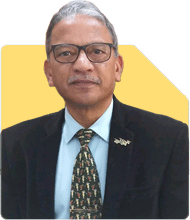
I am a corporate IT employee working as a senior development lead in an MNC with 17 years of experience. I am 40 years old with 6 years old son.
My current portfolio includes the following.
1. PF balance is 26 lakhs
2. company shares worth 19lakhs.
3. mutual funds worth 1.4 crores.
4. I have life insurance policy worth 20 lakhs as asset
5. NPS corpus 14 lakhs
6. Home worth 1 crores
I have a home loan outstanding of rupees 63 lakhs for 12 years and EMI of which is 68000 rupees with 8.5 percent ROI. My gross salary is 3.75 lakhs and in-hand salary is Rs 221000. I get a bonus of 15 percent of my gross salary and a annual raise of 7 percent. My basic salary is Rs. 128000. I do mutual fund SIP of 1 lakh a month. Other savings in each month includes or deducted are Pf 31k, NPS 17k and company share 16k. . I want to retire in 3/5 years.
Also keep in mind that :
1. My current Monthly expenses of 50k is excluding loan emi.
2. I will keep SIP 1 lakhs and will not prepay home loan till I retire or suggest should I prepay or grow my Mutual fund instead.
3. The retirement expenses should rise as per inflation and a bit more for lifestyle upgrade.
4.Also I have a term insurance of 50lakhs which I will continue post retirement aswell.
5. I am planning to settle my home loan outstanding with my gratuity, company share and full and final settlement when I leave company.
Assuming my monthly current expenses as 50k and can be increased with inflation and lifestyle upgrade and having own home, Suggest if I can retire in 3 or 5 years taking into consideration of my loan outstanding liability and 1 kid of 6 years old's future expenses like study and marriage and my retirement expenses ?
Ans: You have built a very strong financial base at 40. Your savings rate is excellent. Your discipline in SIP, PF, NPS and equity exposure shows maturity. Very few people at your age reach this level of corpus. That is a big positive.
Now let us evaluate this calmly and practically.
» Your Current Financial Position
– Mutual Funds: Rs 1.4 crore
– PF: Rs 26 lakhs
– NPS: Rs 14 lakhs
– Company Shares: Rs 19 lakhs
– Home Value: Rs 1 crore
– Outstanding Loan: Rs 63 lakhs
– Monthly Expense (excluding EMI): Rs 50,000
– EMI: Rs 68,000
Your total financial assets are strong. But retirement decision depends on cash flow sustainability, not just asset size.
» Retirement in 3 Years – Is It Practical?
If you retire at 43:
– Your son will be only 9 years old.
– You will have at least 40+ years of post-retirement life.
– Education costs will rise sharply after 5–10 years.
– Inflation will steadily increase your lifestyle expenses.
Today expense is Rs 50k. In 10–12 years it can easily double or more. Also lifestyle upgrade is expected, as you rightly mentioned.
Even if you clear the home loan using gratuity, shares and settlement:
– Your investible corpus will reduce.
– You will depend fully on investments for income.
– No salary cushion.
– Child education peak years not yet started.
Retiring in 3 years looks aggressive and financially tight.
» Retirement in 5 Years – More Realistic?
If you work till 45:
– Your MF corpus may grow significantly with continued Rs 1 lakh SIP.
– PF and NPS will also grow.
– Bonus and annual increment will add strength.
– You will reduce risk of sequence of return shock.
By 45, if your corpus grows meaningfully and loan is closed, early retirement becomes more realistic.
Even then, you must evaluate whether corpus can generate inflation-adjusted income for 40+ years without erosion.
» Home Loan – Prepay or Continue?
Current loan rate: 8.5%
You are investing heavily in equity mutual funds.
Long-term equity returns historically beat 8.5%. So from a pure mathematical view, continuing SIP instead of prepaying makes sense.
But retirement planning is not only maths. It is about risk comfort.
If your plan is to close loan using:
– Gratuity
– Company shares
– Final settlement
That is a reasonable strategy. It preserves compounding now and gives mental freedom at retirement.
I would not suggest aggressive prepayment now if retirement corpus growth is priority.
» Child Education & Marriage Planning
Your son is 6.
– Higher education likely in 12 years.
– Marriage maybe 20+ years later.
Education cost inflation is higher than normal inflation.
You must mentally earmark a separate corpus within your mutual funds for:
– Graduation
– Post graduation (if abroad, very high cost)
This amount should not be mixed with retirement corpus.
If this segregation is not done, early retirement becomes risky.
» Risk in Company Shares
You have Rs 19 lakhs in company shares.
– This is concentration risk.
– Your salary and wealth both depend on same company.
Before retirement, gradually reduce this exposure and diversify into professionally managed mutual funds.
» Term Insurance
You mentioned:
– Rs 50 lakh term cover
– Rs 20 lakh life policy (investment type)
At 40 with dependent child and non-working spouse, Rs 50 lakh term cover is on the lower side.
If you retire early, income stops. But responsibility remains.
You may need to review total risk cover adequacy before retirement decision.
» Retirement Income Sustainability
Today expense Rs 50k.
After loan closure and lifestyle upgrade, assume:
– Rs 70k–80k in near future
– With inflation, it may cross Rs 1.5–2 lakh per month in 20–25 years.
Retirement corpus must survive:
– Market volatility
– Inflation
– Child education withdrawal
– Medical inflation
– 40+ years longevity risk
Early retirement at 43 needs a very large cushion. At present, it appears borderline unless markets perform very strongly.
» What I Would Suggest
– Target retirement at 45 instead of 43.
– Continue Rs 1 lakh SIP strictly.
– Do not prepay loan now.
– Close loan fully at exit using settlement and shares.
– Reduce company stock concentration slowly.
– Separate child education corpus mentally and structurally.
– Review term cover adequacy.
– Keep 2 years expenses in safe instruments before retirement to manage market volatility.
» Important Behavioural Question
Ask yourself:
Do you want complete retirement?
Or financial independence with option to consult, freelance, part-time?
At 45, shifting to lower stress income option may be wiser than full retirement.
That reduces pressure on corpus.
» Final Insights
– You are financially disciplined and ahead of many peers.
– Retirement in 3 years looks risky.
– Retirement in 5 years can be possible if markets support and corpus grows strongly.
– Child education and longevity are the biggest risk factors.
– Loan closure at retirement is a good psychological move.
– Focus on building bigger margin of safety.
Early retirement is possible for you. But it should be done with strength, not stress.
Best Regards,
K. Ramalingam, MBA, CFP,
Chief Financial Planner,
www.holisticinvestment.in
https://www.youtube.com/@HolisticInvestment





























